- Home
- Perrin Briar
The Swiss Family RobinZOM (Book 3) Page 2
The Swiss Family RobinZOM (Book 3) Read online
Page 2
“Here he comes!” he said.
The ground shook, the vibrations rising up their legs. Lightfoot, true to his name, took off. A large black shadow emerged from behind a clump of trees. Jack, with Nip on his shoulder, took a step back. Even Fritz and Ernest backed away, but Francis stood his ground with a grin on his face. He extended an apple in the palm of his hand through the slats of the fence. Two thousand pounds of brute bull muscle approached the fence, which now looked flimsy and childlike beside this leviathan. He lowered his thick neck down to the apple, sniffing through his wide nostrils, blowing Francis’s hair back, and with great delicacy opened his mouth and chomped the apple in one go. Then the bull turned and ran back up the field.
“Well,” Jack said, “now that’s over with, can we get on with Sharpie now?”
Sunlight streamed through the clouds and glinted off the sheen on the broad leaves and native plants around them. Three feet tall canes, no thicker than a man’s thumb grew rigid and straight in clutches along the path. Jack snapped a cane off at the base and put it to his lips, sucking out the sugar. Fritz snapped three canes off and handed one each to Ernest and Francis. Sucking on their sugar canes, they scaled Sharpie the mountain.
Thin rivulets of rainwater wormed its way down the mountainside like sap down a tree’s bark. Apes perched in the only cluster of trees on the mountainside watched the boys pass by underneath them, tucking into the sweet flesh of fresh fruit. The mountainside was largely exposed with little decorating it. A wild pig dashed through the undergrowth with piglets in tow. They paid the boys no mind.
“I never want to be locked up in Falcon’s Nest for that long ever again!” Jack said. “It’s so peaceful out here. Calm, fresh, and so much space!”
Jack held his arms out to the side and spun in a circle. Fritz and Ernest each held one of Francis’s hands and swung him between them every few feet. It was a bit of a struggle for Ernest with his weedy arms, but he did his best to hide it.
“Wheee!” Francis said. “Wheee!”
Panting and out of breath, Ernest put his hand on a boulder to steady himself, his legs shaking and weak. The boulder teetered forward. A few small rocks broke away from the base and rolled down the mountainside, but the large boulder stayed where it was. Ernest breathed a sigh of relief. The boulder hadn’t rolled. There was a long procession of similar rocks, each teetering on the edge.
They drew up to Sharpie’s peak. Jack stretched out his arms to embrace the horizon.
“Nature!” he said, absorbing as much of it into his eleven-year-old lungs as he could. “Aphrodite in her true form.”
“Pretty eloquent for someone who never pays attention in Mum’s classes,” Ernest said.
“Correction,” Jack said. “Appearing not to be paying attention.”
“You certainly do that well.”
Sharpie was on the south eastern tip of New Switzerland, the highest point of land on the island. The sea battered one side, and the island spread out before it on the other. The ocean stretched out to white oblivion on the horizon. The sky was a perfect sapphire blue without a single cloud to blot it. They turned in the opposite direction to find the black flat-bottomed anvil clouds of the monsoon, the rain still falling on a distant stretch of ocean.
“Yes!” Jack said. “Hahaha! Get out of here, storm! Flee!”
Jack’s smile faded and he lowered his arms. He frowned and turned his head to the side in thought. He tapped Fritz on the shoulder. He didn’t respond. Jack punched him on the arm.
“Ow!” Fritz said. “What was that for?”
Jack pointed to something at the other end of the island. Fritz’s face paled.
Run hard to ground on the soft sand of the Bay of Safety was the hull of a giant ship.
Three
Fritz and Ernest felt the reverberations up their arms. They had hold of a handle each. The wheels of the cart were solid wood and did not take the uneven ground well. Bill walked out in front, leading them. He clutched his machete knife tight in one hand. Jack could see Bill’s knuckles were white, which only made Jack grip his policeman’s baton harder. Bill checked every direction twice before signalling for them to continue onward. They came to the bank of a river, the water frothy white and surging below.
Built across the river was a bridge made of thick bamboo. It had been nailed together with thorns from the Acacia tree, and then lashed with strong vines. They called it Family Bridge. Bill raised his hand for the cart to stop. Bill walked across the bridge, stamping his foot each step. Fritz and Ernest massaged their stiff arms. Once Bill got to the other side of the bridge, and checked the coast was clear, he waved the boys over. Family Bridge didn’t so much as creak as the cart trundled over it.
The beach wrapped all the way from the southern point to the western shore. The sand was a golden brown, darkened by the heavy rain, which was fortunate as it made pushing the cart much easier. Bill led them to the edge of the beach that met the jungle. He kneeled down at a gap between the trees, scanning the grass, tree roots and snapped twigs. Unseen exotic birds, the hiss of reptiles and chitter of bugs spoke to him from the jungle. Bill pushed his fedora back with his thumb. Ernest and Fritz stood over their father with their weapons raised high, staring into the dark abyss of the jungle. Jack stood behind his brothers, clutching his police baton more with a sense of fear than malice.
“What is it, Pa?” Fritz said.
“There are no footprints,” Bill said. “Either no survivors found their way onto shore, or the rain washed their footprints away.”
Bill turned and led them down the beach to the seafront. The cruise ship was colossal, twenty floors high and a football pitch long. It had ‘Pandora’ written across its front in a flowing font. It had been bent and lacerated on both sides as if it had been in some kind of collision and then rusted over. It looked like it had a large port wine stain. It leaned to one side, and when they rounded the boat they found the reason why. The ship had impaled itself on a large rock in the bay, and where it had struck, the hull had split open. As the tide came in, it washed inside the boat’s hull and tugged on the crates loaded there. A steady stream of crate breadcrumbs floated on the tide out to sea.
“Shall I go get them?” Fritz said.
“No,” Bill said. “Let’s take a look at what’s inside these crates, shall we?”
Fritz and Ernest seized a crate that was a few yards offshore and carried it onto the beach. The wood was damp and soft. Bill jammed the tip of his machete into the gap between the top and side panel and lifted it. The nails squeaked as it was pried open. Bill reached inside and came out with silk pillows.
“At least we’re going to sleep comfortably,” he said.
Bill peered inside the hull. There were a series of perhaps two dozen stacked crates. Chains that hung from the ceiling clinked together.
“I don’t like this,” Bill said. “Anything could be behind those crates. Let’s get them out of here first and see what we find.”
They each pulled up a handkerchief to cover their mouth and nose. Jack kept watch while Fritz, Ernest and Bill waded into the knee deep water in the hull, the water making soft sloshing noises. Bill aimed a torch at the shadows before letting Fritz or Ernest take a crate. They piled the crates up on the cart outside. Bill heard the frantic buzzing of flies. He pulled the obstructing crate aside and found the remains of what appeared to be a man’s arm. It had been gnawed off at the shoulder, the bone protruding. Bill used his machete to drag it outside and push it out to sea. The flies followed it out.
“Ernest,” Fritz said, gesturing to the floating arm. “I think he’s performing the front stroke.”
He beamed at his own wit.
“Grow up,” Ernest said.
“It’s just a joke.”
“A man lost his life. It’s nothing to be joking about.”
“Oooo. Sor-ry. Pardon me for trying to lighten the mood.”
“You want to lighten the mood? Shut up and give us a hand.”
Fritz fought to keep the smile off his face.
“Let’s get this show on the road,” Bill said.
Bill checked the contents of the bag that hung over his shoulder. The boys held their weapons close. Fritz had a wooden baseball bat, Ernest a golf club.
“We’re right behind you, Pop,” Ernest said.
Bill turned to Jack.
“Jack,” he said, “I want you to stay out here and watch our backs.”
“Aw, man,” Jack said. “I was stuck on watch duty while you guys were unloading. Can’t I come with you this time?”
He was speaking from a sense of fear as opposed to outrage. He didn’t want to be left alone.
“Do you realise how important your role is?” Bill said. “If anything comes in after us, we’ll be finished. You must protect us, Jack. Can you do that?”
Jack nodded and, though still disappointed, spoke with great gravity.
“Yes,” he said.
“Good,” Bill said. “If you get into any trouble at all you are to run in and shout for us, all right?”
Jack nodded.
“What about all the stuff on board that might be useful to us?” Ernest said.
“We can do a quick search of the cabins on our way out,” Bill said. “On a boat this big there could be hundreds of them, even thousands. If we sink the boat now, we’ll be safe.”
“What if there are survivors on board?”
Bill was silent a moment.
“Then I hope they can swim,” he said.
Bill looked at each of his sons in turn, nodded, and then led the way inside.
Four
Bill, Fritz and Ernest waded through the dark narrow corridor. Rust ran along the inside of the walls like motorways on a roadmap. The darkness was punctured by sunlight that filtered in through portholes along the wall. On the left were cabin doors, some shut tight, others wide open. The water swallowing their feet became shallow. There was a blood splatter on the wall, fragments of bone jutting from clotted blood. At the end of the corridor was a thick metal door that stood open. Bill swept his torch over the space inside. There were blank computer terminals and large metal containers.
Bill unshouldered his pack and took out a foot long grey tube and put it amongst the machinery. He attached an egg timer to it. They moved to the far end of the room. Bill deposited another grey tube. They came out of the engine room and moved back down the corridor. Bill pushed open the door to the first cabin. It had two sets of bunk beds, one on either side. The bedside tables had been knocked over and the blankets lay on the floor.
“Be quick,” Bill said. “We’ve got thirty minutes to get clear of the boat.”
Ernest reached for the magazines on the bed covers and tucked them into his backpack. In the tiny bathroom Fritz found a few packs of hair gel and deodorant. They pushed open the doors to the next room. It was a cleaning cupboard. Bill grabbed the bleach, polish and bristle brushes. The next room was large and had a single bed. There was a desk in the corner. Above it was a shelf with hard and paperback books.
“Jackpot,” Ernest said, heading over and stuffing his bag.
“Don’t you mean Ernestpot?” Fritz said.
Bill opened a cupboard and found a row of men’s jackets. He picked the best one and put it on. There were a series of packages on the floor of the wardrobe tied with cute pink bows. Bill tore them open. Inside he found a pink dress and cute sailor’s outfit that looked like it was in Francis’s size.
“We’ve got fifteen minutes left,” Bill said.
They hustled down the corridor, their feet and shins wet. Their movements disturbed the water, causing a door to drift open. There was a rattling sound like a nail file rubbed against iron grating. Bill and the boys stiffened, gripping their weapons in tight fists. Bill peered into the room.
A man lay on the floor, pinned down by a bed’s frame. His dead white eyes stared up at them. The man’s greasy hair was brushed back from his head, and blue veins like ripe cheese stood out on his forehead. His blood-red lips opened and let out a deep guttural groan that came from the depths of his soul. The sound was slow and long. It reverberated down the metal corridors. The Lurcher’s call was answered by a dozen others, and then two dozen, and then innumerable. Some were close, others distant, but they all filled the Robinsons with terror. Bill took out another grey tube and tossed it onto the bed. Bill swung his machete and buried it in the man’s head. A thin spurt of blood squirted over Bill’s trouser leg. He removed his machete and they rushed down the corridor.
“Let’s get out of here!” Bill said.
Bill and the boys waded through the corridor, the low death rattle of Lurchers near and far echoing up and down the cruise liner’s innards. They passed a cabin, and the sound of a death groan grew in volume. None of them turned to look back. They got to the cargo hold. Fritz and Ernest took position beside the door. Bill reached into his pack again and took out another grey tube and attached a timer. He set it for five minutes. Bill slid the grey tube through a link in a chain that hung from the ceiling. They ran out of the cruise liner, where Jack stood waiting for them.
“Everything go all right?” Jack said.
“We’ll see in a few minutes,” Bill said.
“Did you find anything?”
As if in response, groans from hundreds of throats issued up from the ship. Jack’s face turned pale. Fritz and Ernest each grabbed a cart handle and pushed it along the beach back toward the bridge.
“It’s funny,” Fritz said. “Despite the extra weight of the crates, the cart somehow feels lighter.”
“Miraculous,” Ernest said.
High up on the cruise liner, the silhouettes of dozens of figures pressed against the railing, arms outstretched and reaching for the departing flesh of the living.
Five
Bill and the boys put fifty feet between themselves and the cruise liner. Figures emerged from the hole, turning their heads, looking around, and then ambled toward the Robinsons.
“We need to hold them here,” Bill said. “We have to stop them from entering the jungle, or we’ll never live in peace.”
The Lurchers’ movements were hesitant and juddering, without a hint of grace. Many had broken or missing limbs, adding to their grungy gait, but moved surprisingly fast. Most of them wore summer holiday wear, the rest smart crimson uniforms, adding a comical edge to the scene. There was a long chain of them, perhaps fifteen in total, and more pouring out of the hole in the ship’s hull.
“Remember your training,” Bill said. “Make calm, smooth motions. Nothing flashy. Stay relaxed. Never panic. Jack, stay behind me at all times, all right?”
Jack nodded, his eyes wide, hands gripping the baton tight. The first Lurcher approached. It was a large man wearing a bright Bermuda shirt. Bill brought his machete down across his neck. He cut halfway through the flesh, the knife’s edge caught on the undead’s larynx. Another two hacks, and the head was severed. The body slumped to the ground. The thick congealed blood lay on top of the sand, and wasn’t absorbed by it. Fritz met a female Lurcher. She wore large sunglasses. He brought the baseball bat around. It connected with the woman’s temple, the bat buried in her skull. She looked at him with an element of confusion. Fritz pulled the bat free and hit her again. This time she went down. The third Lurcher, wearing a huge pair of baggy shorts, approached Ernest. Bill’s heart was in his throat. Only once the Lurcher was down, his head caved in, did Bill breathe again. The Lurchers were disembarking from the ship faster now, forming tight bunches of twos and threes.
“When will they go off?” Fritz said. “Do you think there’s a problem with them?”
“I don’t know,” Bill said. “They should go off any min-”
KA-BOOM! KA-BOOM!
The two explosions happened in quick succession. The boat shuddered. A large hole was rent from the stern. The Lurchers pivoted on the spot to look back at the noise’s origin. Bill, Fritz and Ernest leapt forward and beat at the Lurchers. They fel
l to the sand. Overcoming their stupor, the remaining Lurchers turned and stumbled toward Bill and his sons.
“Form up!” Bill said.
They formed a line, and as the Lurchers approached, the Robinsons pulled back their weapons. The Lurchers raised their arms toward Ernest and Fritz, but the Robinsons fell on them. A large male Lurcher with exposed chest, and what looked like female breasts, fell to the ground at Fritz’s feet. The Lurcher opened his mouth to bite, but Ernest was there, and buried his golf club in its head. Fritz nodded his thanks.
“Bloody ankle biters,” Fritz said.
KA-BOOM!
The cruise liner leaned over dangerously to one side. The Lurchers pressed up against the deck’s railing spilled over the side. Some landed on their heads, which exploded like watermelons. Others fell in the water, feet unable to find the bottom, and were swept up with the tide and taken out to sea. But most landed in the shallows, got to their feet and limped onto the beach. The cruise ship was on fire amidships, the flames licking the porthole windows. The stern dipped lower into the sea, lifting the bow up out of the water and into the air.
“Where’s the last explosion?” Ernest said. “Shouldn’t there be one more?”
“Something must have happened to it,” Bill said.
“The ship’s not going to sink without it.”
“Might not sink with it either. It’s a big boat.”
“And the Lurchers will keep coming!”
Bill looked along the beach to find Lurchers heading toward the jungle.
“Hey!” Bill shouted at the Lurchers and waved his arms. “Hey!”
He turned to his boys.
“We can’t let them get to the jungle!” Bill said. “We’ll forever be hunting them down!”
“Hey!” Fritz said toward the wayward Lurchers. “Hey! Hey! Over here! This way!”
A Lurcher before him opened her mouth wide and growled. Fritz knocked the Lurcher’s extended arms aside, and then followed with a swift swing of his baseball bat at her head.

 Sink: Once Upon A Time
Sink: Once Upon A Time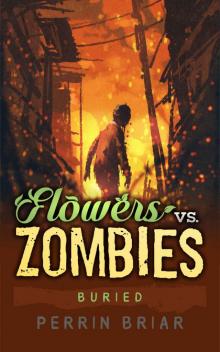 Flowers Vs. Zombies (Book 5) Buried
Flowers Vs. Zombies (Book 5) Buried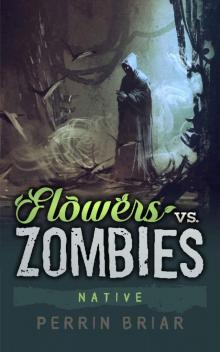 Flowers Vs. Zombies (Book 6) Native
Flowers Vs. Zombies (Book 6) Native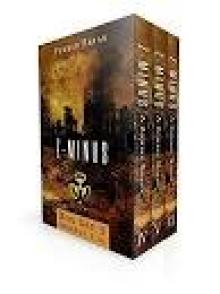 Z-Minus Box Set 2
Z-Minus Box Set 2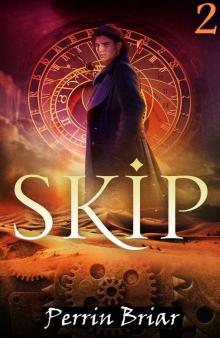 Skip: An Epic Science Fiction Fantasy Adventure Series (Book 2)
Skip: An Epic Science Fiction Fantasy Adventure Series (Book 2) Resistance (Book 1): Juvenile
Resistance (Book 1): Juvenile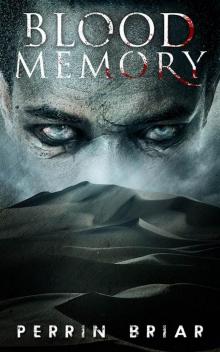 Blood Memory: A Post-Apocalypse Series (Book Five)
Blood Memory: A Post-Apocalypse Series (Book Five) Sink: The Lost World
Sink: The Lost World![Z-Minus Box Set [Books 1-3] Read online](http://i1.bookreadfree.com/i1/03/30/z-minus_box_set_books_1-3_preview.jpg) Z-Minus Box Set [Books 1-3]
Z-Minus Box Set [Books 1-3] Compulsion
Compulsion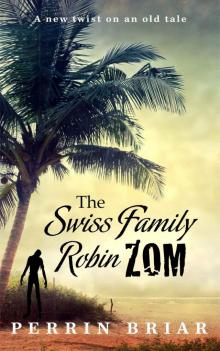 The Swiss Family RobinZOM (Book 3)
The Swiss Family RobinZOM (Book 3)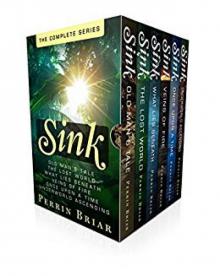 Sink: The Complete Series
Sink: The Complete Series Expulsion
Expulsion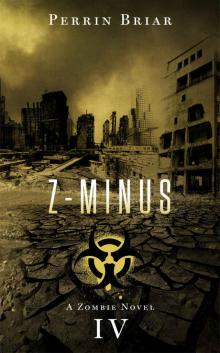 Z-Minus (Book 4)
Z-Minus (Book 4) Resistant Box Set
Resistant Box Set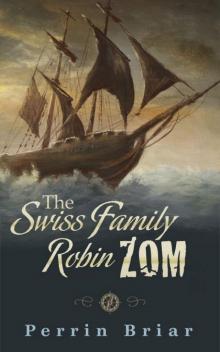 The Swiss Family RobinZOM (Book 2)
The Swiss Family RobinZOM (Book 2) The Swiss Family RobinZOM (Book 5)
The Swiss Family RobinZOM (Book 5)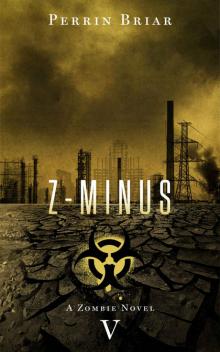 Z-Minus (Book 5)
Z-Minus (Book 5) Resistance (Book 2): Resistant
Resistance (Book 2): Resistant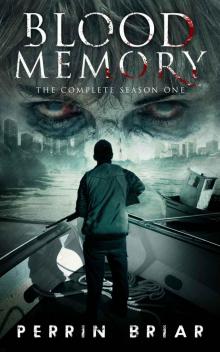 Blood Memory: The Complete Season One (Books 1-5)
Blood Memory: The Complete Season One (Books 1-5)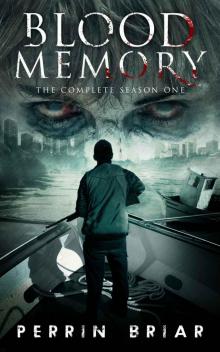 Blood Memory (Season 1): Books 1-5
Blood Memory (Season 1): Books 1-5 Flowers Vs. Zombies: The Complete Series
Flowers Vs. Zombies: The Complete Series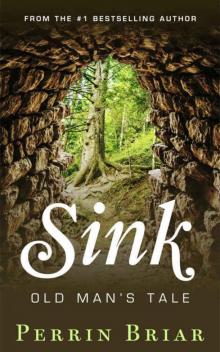 Sink: Old Man's Tale
Sink: Old Man's Tale![Cut Off [Part 1] Read online](http://i1.bookreadfree.com/i2/04/06/cut_off_part_1_preview.jpg) Cut Off [Part 1]
Cut Off [Part 1] Flowers vs. Zombies (Book 2): Vagrant
Flowers vs. Zombies (Book 2): Vagrant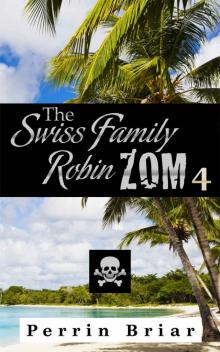 The Swiss Family RobinZOM (Book 4)
The Swiss Family RobinZOM (Book 4)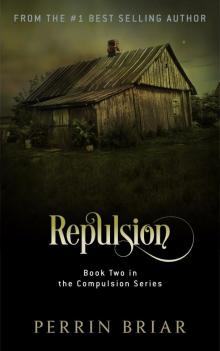 Repulsion (Compulsion Book 2)
Repulsion (Compulsion Book 2)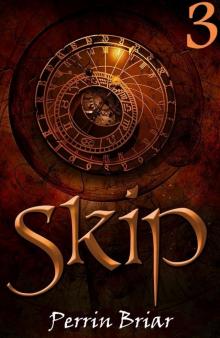 Skip: An Epic Science Fiction Fantasy Adventure Series (Book 3)
Skip: An Epic Science Fiction Fantasy Adventure Series (Book 3)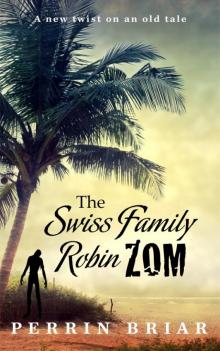 The Swiss Family RobinZOM
The Swiss Family RobinZOM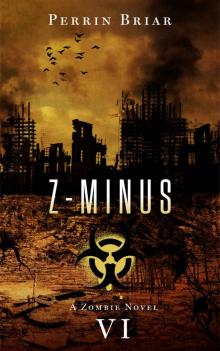 Z-Minus (Book 6)
Z-Minus (Book 6)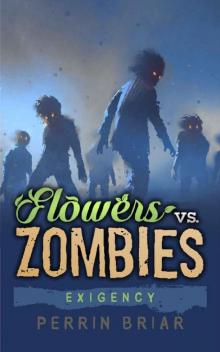 Flowers vs. Zombies (Book 4): Exigency
Flowers vs. Zombies (Book 4): Exigency![[An Epic Fantasy 01.0] Skip Read online](http://i1.bookreadfree.com/i2/04/12/an_epic_fantasy_01_0_skip_preview.jpg) [An Epic Fantasy 01.0] Skip
[An Epic Fantasy 01.0] Skip Flowers Vs. Zombies: Genesis
Flowers Vs. Zombies: Genesis